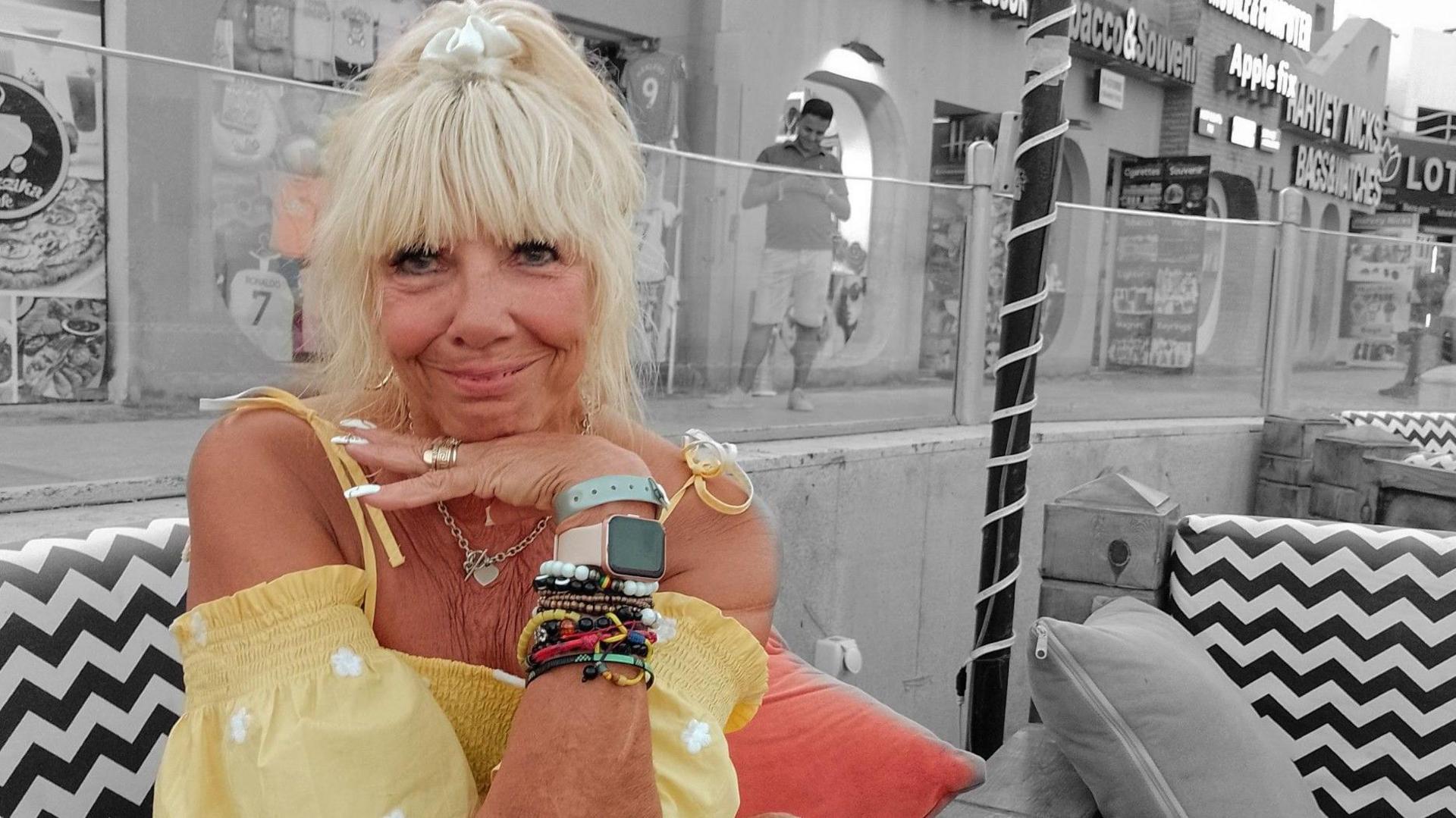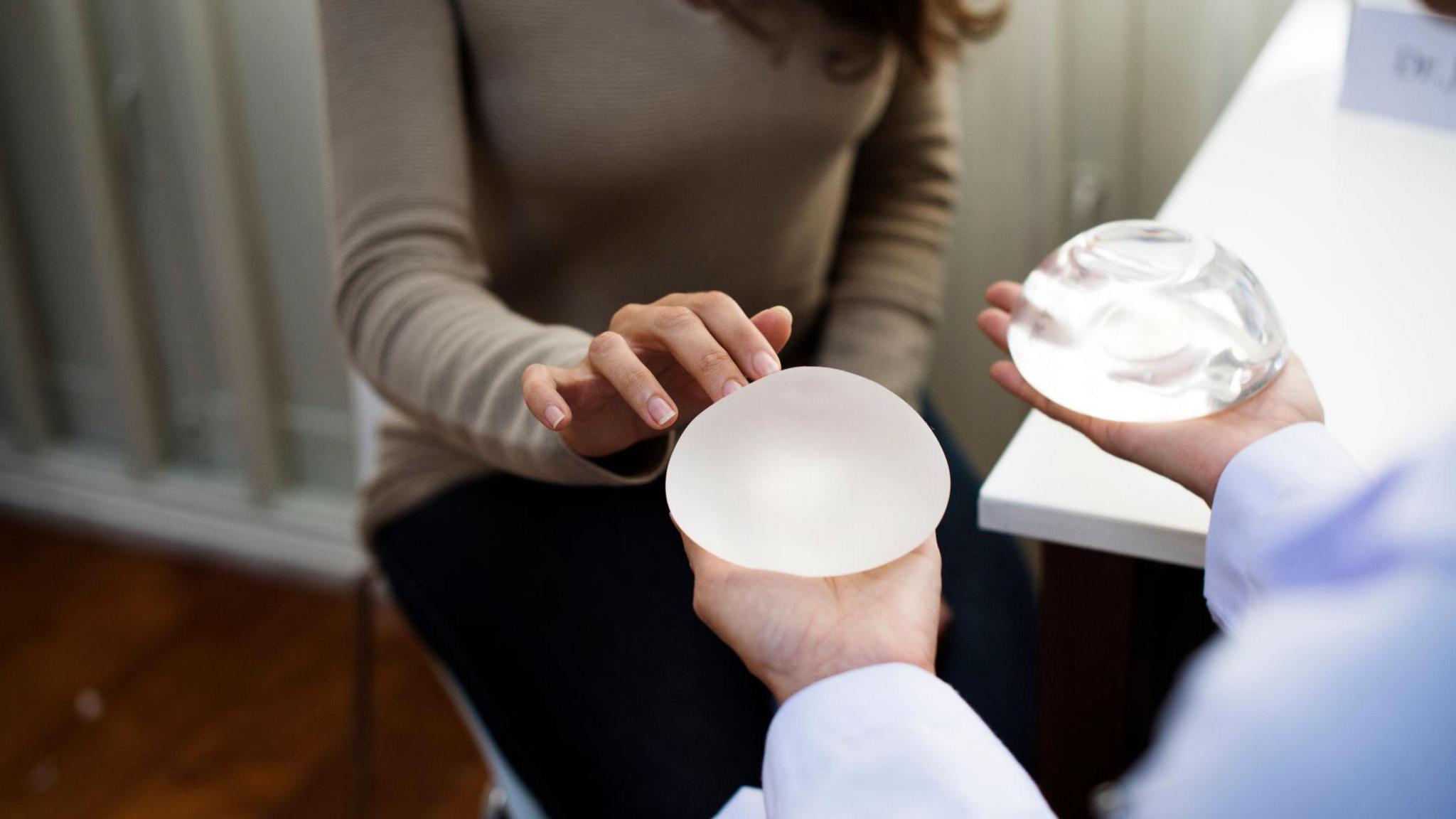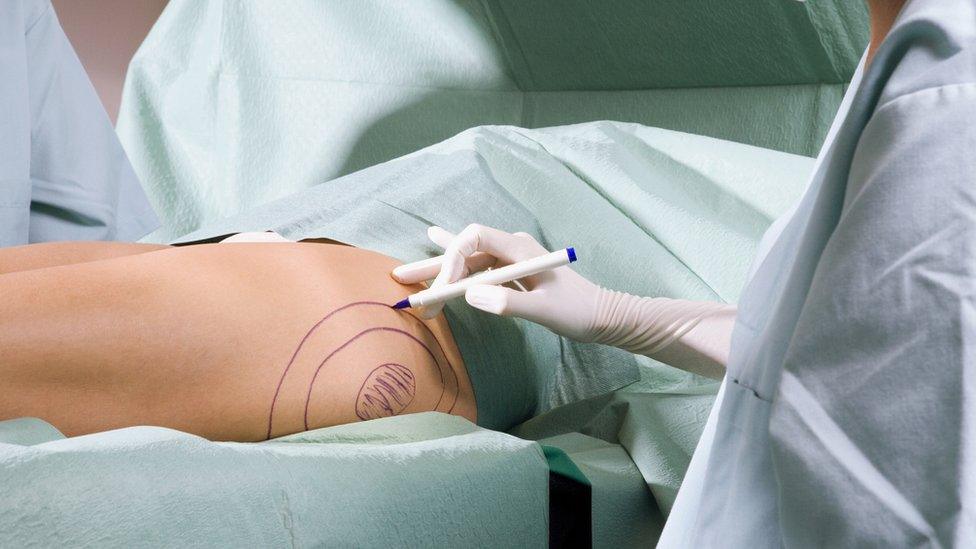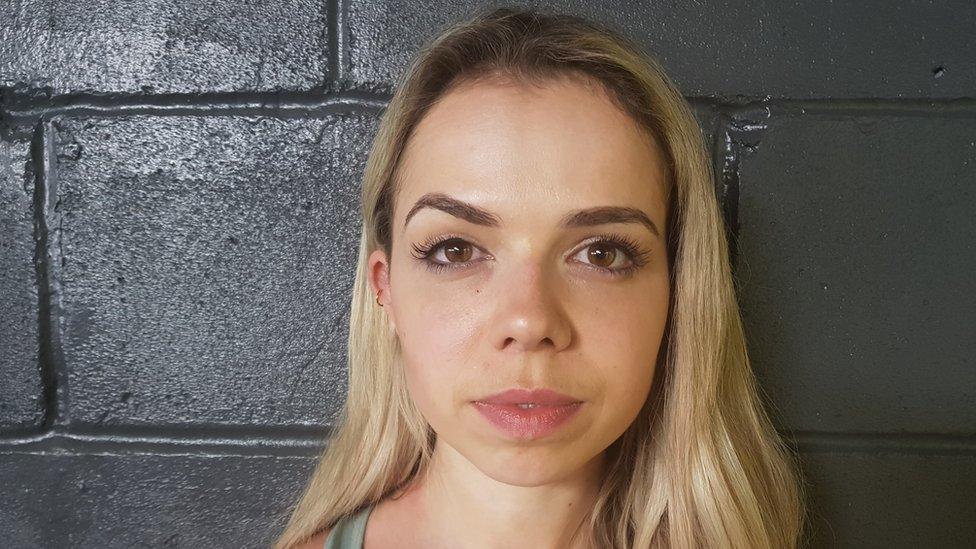Woman with cancer warns of rare breast implant risk

- Published
A woman who developed a rare type of cancer linked to her breast implants has warned that others with similar implants could be "walking around like timebombs".
Susan Axelby, 68, was recently paid £57,000 by Allergan Limited after she fell ill with breast-implant associated anaplastic large-cell lymphoma (BIA-ALCL).
It is thought to be one of the first payouts of this kind linked to Allergan breast implants in the UK.
She had her breasts removed to avoid the risk of inherited breast cancer - but went on to develop cancer after the implants.
Regulators have received at least 106 reports of BIA-ALCL relating to surgery in the UK, involving six manufacturers.
Rare risk
The Medicines and Healthcare products Regulatory Agency (MHRA) is currently collecting data on women who are affected.
In her first broadcast interview, Susan told BBC Radio 4's Woman's Hour programme about the ordeal - and while her case is very rare, she has a warning for others.
"I'm thinking, not so much me - I'm nearly 70 - but there's young girls, because they wanted breast augmentation, and they're walking around like timebombs," she said.
"They've no idea what's in their body now - and if it's happened to me and a few other people, you know, they can be walking around like that."
Susan had the implants in Sheffield, where she lives, after her own breasts were removed to protect her against an inherited cancer risk.
A few years later, she noticed some swelling in one of her new breasts, which felt hot to the touch.
'Swelled up'
"I went back to the hospital and they drained 500 millilitres of fluid out of it," Susan said.
"Then I went back home and it swelled up again.
"I went back again and they drained the same amount off - within a month, that was."
Susan was referred to a surgeon, who discovered she had BIA-ALCL - a cancer of the immune system, not a type of breast cancer, that can develop in the scar tissue around breast implants.
"I didn't believe it," she said.
"I was in denial because I'd had my breasts off to stop me getting cancer and now I've got cancer.
"I thought, 'How can that be?'"
The surgeon then told Susan the implant had to be removed.
"He said, 'we're going to have to take it out and take the breasts off again'," she said.
"And they said I could never, ever have another implant.
"The only way around it is to take stuff from another part of my body and rebuild it.
"I just said to him, 'I can't go through that again'."
'I have bad days'
Susan now has no implants, breast tissue or nipples.
"There's actually nothing," she said.
"There's just a straight line all the way across the top of my body."
It has affected her confidence and wellbeing.
"I don't like anyone to see me without any clothes on and that does quite include my husband, although he's not bothered at all.
"I have bad days.
"I still get problems with my anxiety and my depression, so it's never gone away."
Susan had sued Allergan, she said, not just for her own sake but for others too.
The claim was settled and Allergan, a US pharmaceutical company, paid Susan the £57,000 in October 2023, with no admission of liability.
Scientists say BIA-ALCL could be a reaction to the implant's textured surface or a bacterial infection.
As of December 2023, the estimated incidence of BIA-ALCL, based on confirmed cases requiring surgery in the UK, is one per 14,200 implants sold.
Other affected people in the UK are coming together to take legal action.
And another group is seeking compensation from Allergan on behalf of 60,000 women from the Netherlands.
In 2019, Allergan issued a voluntary global recall of Biocell textured breast implants and tissue expanders and no longer manufactures these types of implants.
The MHRA says there is no need for people with breast implants but no signs or symptoms of BIA-ALCL, to have them removed or checked.
But anyone with unusual signs or symptoms, such as swelling around their breast implant, should see a doctor.
Get in touch
Have you been affected by the issues raised in this story?
Related topics
- Published12 June 2024

- Published28 March 2023

- Published22 July 2019
